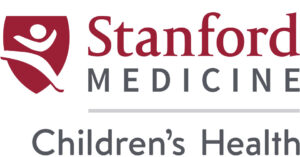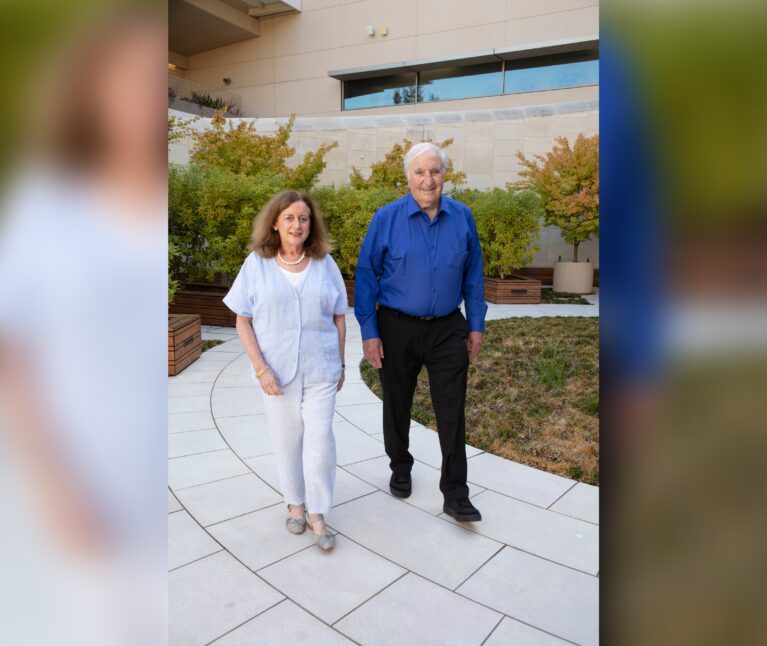Barbara Sourkes and Harvey Cohen are retiring as pioneers in pediatric palliative care.
When Harvey Cohen, MD, PhD, was chief of staff at Lucile Packard Children’s Hospital Stanford and chair of pediatrics at Stanford in the late 1990s, a pediatrician challenged him with the question: “What do we do when we know we can’t cure the child? How do we help the family?” The hospital’s intensive care program was expanding, and doctors were encountering more children with increasingly serious medical conditions.
“It was really clear that we needed a program that would specifically target the needs of children with life-threatening or chronic complex diseases and their families,” says Cohen, who has served as the Deborah E. Addicott – John A. Kriewall and Elizabeth A. Haehl Family Professor of Pediatrics at Stanford since stepping down from his leadership roles in 2006.
Cohen formed a task force to address this pressing issue. A needs assessment, spearheaded by Nancy Contro, LCSW, solicited information from both bereaved families and hospital staff about their experiences and suggestions for improving palliative care. The findings, published in prestigious pediatric journals, provided the groundwork for establishing Packard Children’s Palliative Care program.
From the outset, Cohen relied on philanthropy, beginning with generous support from John Kriewall and Betsy Haehl. He recruited Barbara Sourkes, PhD, a child psychologist at Montreal Children’s Hospital and an internationally known clinical leader and author in the field of pediatric palliative care. Upon Sourkes’ arrival in 2001, she was named the first John A. Kriewall and Elizabeth A. Haehl Director of Pediatric Palliative Care.
The program was placed in the division of Critical Care because so many palliative issues arise on the unit in caring for children with a spectrum of illnesses. This location dispelled the belief that palliative care was only for patients with cancer.
A Multidisciplinary Initiative
The Palliative Care program at Packard Children’s was among the first such programs in the country. Sourkes assembled a team from a spectrum of disciplines: medicine, nursing, psychology, social work, chaplaincy, child life, case management, and education. “This isn’t a single-profession undertaking,” she says. “Given the challenges that these children and families encounter, it’s essential that we get as many perspectives as possible.
“There was a lot of education to explain that palliative care is for any seriously ill child— whether death is imminent or a lurking threat that the child may not live out a normal life span,” Sourkes says. “Eventually, the program encompassed children with complex chronic conditions. All of these children deal with the physical and emotional vicissitudes of serious illness—sometimes over decades—as do their families.”
The program serves as a lifeline for families navigating heartbreaking situations. After Esther Levy’s 14-month-old son, Andrew, was diagnosed with a rare form of leukemia in 2014, she says her life became a “living nightmare.” Cohen, Sourkes, and their colleagues guided the family throughout treatment, hospice care, and bereavement. “Living through a child’s life-threatening illness is not just about supporting the child, but supporting the family through the journey ahead,” Levy said, in 2017. “I truly believe that the palliative care team is why I am still standing here today.”
The program also provides training for care team members and trainees, helping them understand the impact on themselves of working with these children and families.
Over time, gifts from donors have allowed the program to add important initiatives. Healing HeARTS magazine publishes the creative images and words of children treated at our hospital and their siblings. The Annual Day of Remembrance and Rededication brings together bereaved families in commemoration of their children.
A Legacy of Caring
When Sourkes and Cohen, the current Katie and Paul Dougherty Medical Director, retire in August 2023, they will leave a legacy of expertise and care. They hope the program will continue to expand by growing the team; venturing into new arenas, including supporting expectant parents who already know that their baby has a serious medical condition; and bolstering in-home support for children. Moving forward, the program will become its own division within the Department of Pediatrics—the School of Medicine and hospital are recruiting Palliative Care’s first division chief.
As a closing achievement, Sourkes (with two colleagues) co-edited the second edition of their book, Interdisciplinary Pediatric Palliative Care. One of her chapters ends with a 6-year-old child’s statement: “Thank you for giving me aliveness.” Sourkes continues: “These words express the essence of pediatric palliative care: to ‘give aliveness’ to a child, for however long that life may last. It is this commitment that underlies all the work we do and gives us a profound sense of fulfillment.”


